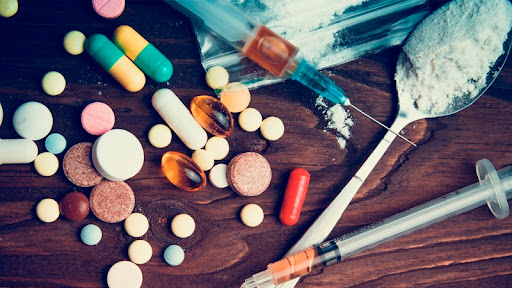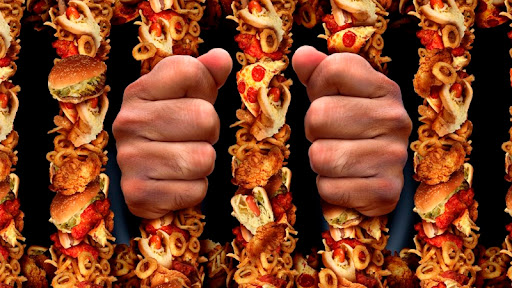7 Main Addictions People Suffer From

Looking at people might give you the notion of perfection. But in the real sense, they might be battling or rather, suffering from one addiction or the other. Addiction is not something to deduce at a glance but some can be noticed via keen observations to identify addiction.
Addiction comes in several forms and the most common might just be the case of alcohol or drugs. According to a survey conducted, about 3.5% of the world’s population is addicted to alcohol or drug use. This study further shows that there are psychological addictions that could not be recorded. It was either people who couldn’t identify these addictions or were in denial. This brings us to a question: What are the seven (7) main addictions people suffer from. Knowing this can help you know if you are a victim of addiction or not. The first step to seeking help is identifying the problem and admitting you have the problem. So, let’s get right to it.
What Is Addiction?
When people hear addiction they have one stereotypical thought, drugs. It is important to know that even though addiction is mostly associated with drugs doesn’t always mean it is drug-related when used in a context. Addiction is a word that can be used interchangeably with dependence. It simply means irresistible attraction to a particular substance, activity, object, etc. When a person indulges in these activities or uses these things, it leaves a psychological discomfort. The object of addiction may be physical or mental. Usually, when the object of addiction is weaned off, the person experiences a sense of painful loss.
Signs and Symptoms of Addiction
The signs and symptoms may be subtle and might even seem natural or neutral. Most times, these habits usually seem behaviours that seem controlled. Each addiction is associated with several signs and symptoms that may be in the physical or psychological realm. The symptoms will be divided into two parts; the physical and the psychological realm.
| The Sphere | The Symptoms |
| physical | Sweating, accelerated pulse, trembling of the whole body or limbs, muscle tension, difficulty breathing, nausea, vomiting, diarrhea. |
| psychological | the feeling of uncontrollable thirst; increased levels of anxiety; panic attacks; depressed mood, anger, and shame; unnecessary and reckless risky behaviour; sleep disturbances or insomnia; obsessive-compulsive symptoms; irritability and paranoia |
| Other | relationship chaos; poor performance in the work process; absenteeism from work/school; financial problems |
Why Do People Become Addicted?
Many suggest that a person can only be addicted to substances that have a physical effect on the body, such as alcohol, drugs, and nicotine. But addiction can develop into a huge range of activities that are enjoyable for the person and allow a temporary escape from the pressures of everyday life. There are serious studies explaining how and why addiction develops. The human brain responds in a specific way, reinforcing behaviour directly related to survival. It has an automatic reward and incentive system that responds to stimuli by releasing certain neurotransmitters (such as dopamine).
During eating and sex, the human brain recognizes that this is an important experience related to its survival. This leads to a high level of excitement and a sense of pleasure. The latter, in turn, causes emotional spikes in the appearance of memories in connection with these activities. This memory applies to future behaviour choices as a tool for survival. Some substances mimic a similar reaction to brain activity. They release transmitters (including dopamine) to create emotions with such a positive focus. Some people who take these substances feel the need to re-experience the emotions derived from the active ingredient. This desire can be the first step towards addiction.
To understand addiction, it is very important to study the effects of substances and the way they make an individual feel. Research has found strong links between victims of emotional (or physical) trauma and addiction to substances such as alcohol and drugs. One of the reasons for this connection may be the ” numbing” effect of some spirits and some drugs that are used to block memories and emotions.
The mechanism of addiction sometimes parasitizes on the coping mechanism of the individual. People living with problems such as depression, anxiety disorder, and post-traumatic stress disorder can reach out to various substances to try to deal with the consequences of these disorders. People living with a high mental load are also more likely to use opiates similarly. Research shows that those who do not have (or have very little) social support are more likely to be addicted.
Living in an environment where risky behaviour and substance use are observed is also a contributing factor to potential addiction. Children with parents or a social circle in which there is addiction are more prone to addiction in adulthood. Genetic links that contribute to addiction have also been found. Studies show that several different genes can contribute to an individual’s overall sensitivity to possible addiction.
Is Addiction the Same as a Hobby?
Originally, most addiction starts as hobbies. Then at a point, it grows and becomes devastating to a person’s well-being. An individual with addictive behaviour directs all his activity towards satisfying his addiction. At the same time, other aspects of the personality that have potential do not develop, social ties often break off.
An environment of the same addictive personalities is formed, which involves a person in a vicious circle. Several sciences are involved in the study of addictions, such as psychology, sociology, and medicine. Depending on how the escape from reality is carried out, pharmacological or chemical, substantive, and nutritional addictions are distinguished.
What Are the 7 Main Addictions People Suffer From?
There are seven main addictions. These addictions are further divided into two main groups:
chemical (pharmacological) addictions like alcoholism and substance abuse and non-chemical (psychological, substantive) addictions. Some other dependence that is connected with chemical and non-chemical types, in the same way, is smoking.
The need for an object is expressed in extreme psychological discomfort. In this case, psychosomatic manifestations are possible. The number of psychological addictions is growing. The substantial ones include:
- computer addictions;
- gambling addictions;
- emotional codependencies (sex and love addictions);
- food addiction;
- workaholism.
The spread of various types of addictive behaviour (drug addiction, alcoholism, substance abuse, gambling, Internet addiction, etc.) is a serious threat to modern society and requires the combined efforts of specialists in various fields. A deep understanding of the causes, mechanisms, and factors of the emergence of addiction implies paying attention both to the personal characteristics of addicts and to external ones, in particular, to the socio-psychological conditions for the development of a tendency to addictive behaviour.
Chemical Addiction
Here we are speaking about drugs, alcohol or other substance-taking problem. Here the point is that people try to relieve some pain feeling inside unconsciously. There may be problems connected with the family, childhood or adult life difficulties. This kind of dependence is very dangerous because it has an influence on people’s health and minds physical. Some drug takers after the long term of the illness have those mental problems which can never fix the consequences. The other problem is that it may not only ruin your life but even take it out of you. Some people die because of drugs being still very young.
Smoking
People discuss if this type of addiction is more connected to the chemical type or the opposite one. The thing is that smoking really has an impact on a person’s health so it can be easily considered as chemical dependence. But the obvious impact happens only after some years of this habit developing. It is not something starting with the first cigarette. Moreover, some people really don’t feel physical dependence on this activity but psychologically they think they do.
Computer Addictions
Computer or any kind of gadget addiction is the problem of the 21st century. Nowadays, the first that happens in the morning of the majority of people is taking the phone in hand and checking the news or email or some social networks. But the point is that all these gadgets’ engagement keeps happening during the whole day, again and again. Moreover, another reason why this addiction is the problem nowadays is that modern technologies help users feel like they are in another reality and many computer games players unconsciously change real life into computer world reality, feeling there stronger, braver and more successful than they are in fact.
Gambling Addiction As One Of the Most Unexpected
Gambling addiction is one of those addictions that tends to slowly kill while giving hope. A perfect definition of the phrase, “it is the hope that kills.” Another word for Gambling is Ludopathy.
People can pick up this habit from gambling sites like an online casino where there are many games for users to pick from. All of these are aimed to provide relaxation and comfort but there are people who can’t cope with it and become addicted. The boom of gambling addiction was when there many mobile casinos appeared. People found out the amazing possibility to have fun wherever they are. Others turned this activity into a way of earning good money, especially using different bonuses and promotions. The best promotions should be found in no deposit bonus mobile casino, which allows you to spin the reels with no need to risk your money. But be careful, cause the best bonuses and promotions are the ones which may cause addiction in the future.
Gambling addiction is considered a psychological problem that affects various aspects of life (personal, family, work, social, and economic). The person’s ability to control himself is affected and it is difficult for him to say: “No”, being unable to postpone the impulse or desire to play; it is also possible that he initially denies the problem.
Below are some of the reasons why a person may develop gambling addiction:
- Preoccupation with gambling (eg, preoccupation with reliving past gambling experiences, compensating for advantages between competitors or planning the next move, or thinking of ways to get money to play with).
- Need to play with increasing amounts of money to achieve the desired level of excitement.
- Repeated failure of efforts to control, disrupt or stop gambling.
- Restlessness or irritability when trying to interrupt or stop gambling.
- Play is used as a strategy to escape from problems or to relieve dysphoria (eg, feelings of hopelessness, guilt, anxiety, depression).
- After losing money in gambling, he comes back at another time to try to win it back (trying to ‘catch’ his losses).
- Family members, therapists, or others are tricked into hiding the extent of gambling involvement.
- Illegal acts such as forgery, fraud, theft, or breach of trust are committed to financing gambling.
- Significant interpersonal relationships, job, partner, and educational or career opportunities have been jeopardized or lost due to gambling.
- Others are trusted to provide money that alleviates the dire financial situation caused by gambling.
Emotional Codependencies
This addiction is very serious, though many people don’t consider it like that. Being in love or thinking that they are, people make many stupid things. In this state, it is very difficult to analyze and the mind doesn’t work properly. In fact, the emotional dependence problem can happen to everyone, it is impossible to predict anyhow. The best way to cope with the problem is by visiting a psychologist who may determine if the passion you have is a kind of addiction and how to handle everything out.
Food Addiction
Here we are speaking about the general problem we say addiction to food, but in fact it means any consuming problem many people suffer from nowadays. Speaking about psychology, this dependence happens as usual because unconsciously the person feels miserable or unhappy and the only way to feel better is to eat something tasty or drink something shadowing mind. If you feel you may have a problem, the first you should do is to think about what happens you are unhappy and try to change your life. If you have any difficulties with this stage then go to the psychologist to have some help and support.
Workaholism
This problem may be considered as another way of escaping from the reality. Work, as usual, has its own rules and it is much easier to accept them and improve yourself according to these rules to feel happier and more successful. Real-life is more difficult, there are no rules which guarantee your success, even if you do everything right the world can turn upside down at any moment. People who are prone to this dependence, as usual, are afraid of life as it is and the help of professionals is necessary on this occasion.
Conclusion
All the addictions are bad for you and your close people, but the best way to avoid any of them is to take care of your psychological state, take care of your emotional health and ask yourself all the time how happy you are and what to change if everything is not perfect. The common practice of taking care of your emotional health is visiting a professional psychologist, who may help to figure everything out.





